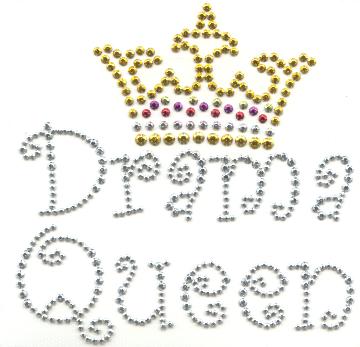Drama
Drama is a unique tool to explore and express human feeling.
Drama is an essential form of behaviour in all cultures, it is a fundamental human activity.
- Drama has the potential, as a diverse medium, to enhance cognitive, affective and motor development.
- A high degree of thinking, feeling and moving is involved and subsequently aids in the development of skills for all other learning within and outside of schools (transfer of learning).
- Drama is a discrete skill in itself (acting, theatre, refined skill), and therefore it is offered as a 'subject' in secondary school. However Drama is also a tool which is flexible, versatile and applicable among all areas of the curriculum. Through its application as a tool in the primary classroom, Drama can be experienced by all children.
Drama assists in the development of :
- the use of imagination
- powers of creative self expression
- decision making and problem solving skills
- and understanding of self and the world
- self confidence, asense of worth and respect and consideration for others.
'the enactment of real and imagined events through role-play, play making and performances, enabling individuals and groups to explore, shape and represent ideas, feelings and their consequences in symbolic or dramatic form.'
Types of Drama
There are many forms of Drama. Here is a non-exhaustive list with a simple explanation of each:
Improvisation / Let's Pretend
A scene is set, either by the teacher or the children, and then with little or no time to prepare a script the students perform before the class.
Role Plays
Students are given a particular role in a scripted play. After rehearsal the play is performed for the class, school or parents.
Mime
Children use only facial expressions and body language to pass on a message script to the rest of the class.
Masked Drama
The main props are masks. Children then feel less inhibited to perform and overact while participating in this form of drama.
Children are given specific parts to play with a formal script. Using only their voices they must create the full picture for the rest of the class. Interpreting content and expressing it using only the voice.
Puppet Plays
Children use puppets to say and do things that they may feel too inhibited to say or do themselves.
Performance Poetry
While reciting a poem the children are encourage to act out the story from the poem.
Radio Drama
Similar to script reading with the addition of other sound affects, The painting of the mental picture is important.
source from :http://ehlt.flinders.edu.au/education/DLiT/2001/drama/whatdram.htm



No comments:
Post a Comment